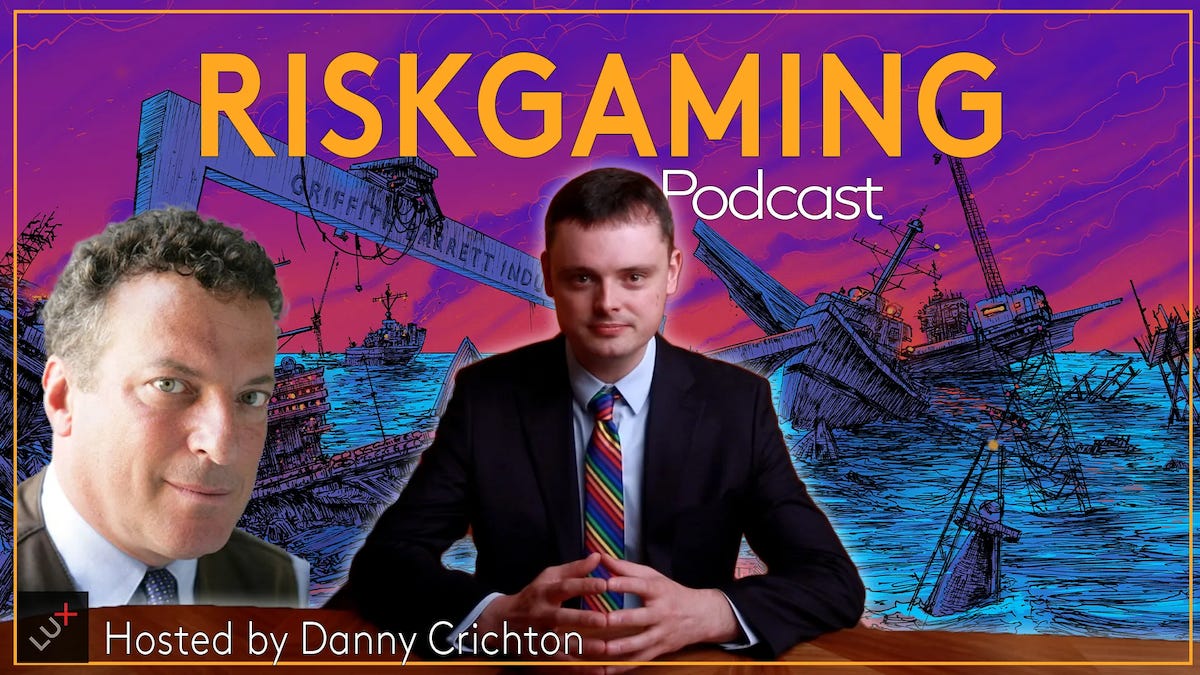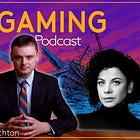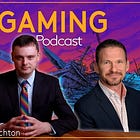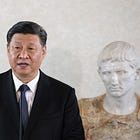Few agencies have been more central to global affairs than the aptly-named Central Intelligence Agency. Often shrouded in mystique both cultivated and unasked for, the agency has been at the center of some of the most important foreign policy successes of the United States — such as the search for bin Laden — and also some of the country’s gravest errors, including the Iraq War WMD debacle. Yet, the agency faces profound pressure today on what its present and future mission should be in a world of increasing competition between great powers.
That mission is the subject of Tim Weiner’s new book “The Mission: The CIA in the 21st Century.” Weiner has been chronicling the agency since the 1980s, from its covert action program in Afghanistan to the austere budget years of the 1990s to the rise of counterterrorism and now, the pivot to Russia, China, Iran and other U.S. adversaries.
Weiner and I talk about his history reporting on the agency, the challenge of regrouping to confront future threats versus present ones, how the agency has struggled on intelligence gathering in China, the relationship between the FBI and CIA, and finally, what’s next for the agency under the current Trump administration.
This interview has been edited for length and clarity. To hear more of the conversation, please subscribe to our Riskgaming podcast.
Danny Crichton:
You're a lifelong author, but I want to start with a book that I read in high school, Legacy of Ashes. Many of our listeners are young tech founders who may not even have been alive when it was published, but it came at a really, really important time in the intelligence community. The 9/11 Commission was underway. You had the Iraq War debacle going on from 2003 to 2005. And you came out with the first book that really opened up the dialogue and explored the entire history of the scandals and crises that befell CIA and the classified and confidential operations they were undertaking.
Take us back to that era.
Tim Weiner:
I first set foot in the CIA early in 1988. I was a reporter for The Philadelphia Inquirer, and the way I got my foot in the door is kind of a good story. The previous summer, I was making plans to go to Afghanistan. Then under Soviet occupation, the CIA had a not-terribly-secret covert action program to ship billions of dollars of weapons to the Afghan guerrillas fighting the Soviets. The CIA didn't set foot in Afghanistan, Pakistanis trans-shipped the arms. Reporters generally did not go to Afghanistan. It was pretty dangerous.
So not knowing any better, I called up the CIA, the public affairs officer on duty. I said, "Hi there, I'm a reporter. I'm going off to Afghanistan to write about this enormous covert action program you guys have going. And I understand you people sometimes do country briefings for reporters who are off to strange places. How about it?"
The public information officer said, "absolutely not," and hung up. So off I went to Afghanistan. It was an amazing trip — three months. I hadn't been back at my desk in Washington for more than a day when the phone rang. Guess who? It's my new best friend from the CIA, "How are you, Tim," he asked. I said, "Great." "How was your trip?" he asked. I said, "It was awesome." He said, "How would you like to come in for that briefing now?"
So off I went to CIA headquarters, which is about seven miles outside of Washington in the woodlands of Langley, Virginia. You walk into the old headquarters building there, on your left engraved in big letters is a passage from the Gospel of John that says, "And ye shall know the truth and the truth will make you free." Well, at that point I was hooked. I covered the CIA for The New York Times from 1993 to 2000.
In those years, the CIA was in bad shape. Its original mission from 1947 was to push back, spy on and understand the Soviet Union. The Soviet Union was gone. What was the mission now? Nobody seemed to know. The foreign policy of the United States had lost its North star. The top intelligence analysts, the top covert operations officers, were literally saying "What is the mission?" They were looking for some direction from the Bill Clinton administration and were getting very little of it.
Then in August of 1998, al Qaeda blew up two U.S. embassies in Nairobi and Dar es Salaam. And with that, the CIA realized that it was facing a new kind of enemy, one that could strike from its base in Afghanistan 3,000 miles away and hit two targets at once. Counterterrorism, it appeared, would replace anti-communism as the new mission. The director, George Tenet, tried to get the CIA and the rest of the U.S. intelligence community and military and the White House mobilized with a secret proclamation that said, "We are at war," and nothing much happened. Poor George, who I knew quite well, was like the Wizard of Oz, punching buttons and pulling levers and there's nothing behind the wall on which they're attached to make things happen.
With the new administration of George W. Bush, the threat reporting intensified. The CIA warned Bush three dozen times that something terrible was about to happen with al Qaeda, but they couldn't say when or where. And then we were hit. It was a want of intelligence that allowed the attacks to succeed. It was for want of intelligence that the terrible events of the American War on Terror gathered, the secret prisons, the torture and all that went with that.
Strategic thinking and strategic analysis are exceedingly rare at the CIA, and indeed in our popular culture. We have all been made prisoners of the speed of the internet.
Danny Crichton:
So when you say intelligence was very fractured, it was also getting defunded. There's a massive pullback as people are trying to reconfigure the federal budget. Clinton, I believe, actually gets to positive numbers by 1998, 1999. But then there's this huge wave of funding that comes back. You go into the Iraq period, and you have this massive bureaucratic reconfiguration and new surge of resources, but the fundamentals are still off.
Tim Weiner:
Well, the CIA did take about a 20%, 25% budget cut during the 1990s. It started at the end of the George H.W. Bush administration. The peace dividend, such as it was, was never really reinvested. At the end of the 1990s, the budget was about $3 billion a year, which adjusted for inflation is about what it was at the time of the Korean War. After 9/11, Congress threw a wheelbarrow full of money at the CIA. The budget instantly doubled to about $6 billion or $7 billion. And the Counterterrorism Center grew tenfold to about, numbers are not public, but well north of 2,000 people. It became the biggest single component of the operations side of the CIA by far.
Unfortunately, the CIA did not have a very large cadre of people who knew about counterterrorism, who knew about al Qaeda, and it had a very small paramilitary division, probably about 100 people strong toward the end of 2001. All of this ballooned enormously without a concomitant increase in leadership experience, knowledge or direction.
Danny Crichton:
Obviously, there's a lot of comparisons to the modern world, but I want to focus on one component. With all of our Riskgaming activities, we do a lot of long-horizon work, so we're always trying to look around the corner. We're in the venture capital industry, where we're investing in companies today that hopefully will succeed in the next 10, 15, 20 years. And so we always have to be thinking, "What's 2030 going to look like, what's 2035?" But then there's also this pressure of saying, "Well, we have a deal in front of us, we need an answer today."
When you think about the CIA as the executor of foreign policy on behalf of the president, how do you balance when the president says, "Look, I need an answer today, I realize you don't have one, but I have to make a decision, the decision is now." What would you do? What is the proper response?
Tim Weiner:
The problem you're stating is a classic problem and it boils down to the difference between strategy and tactics. Tactics is, "What am I going to do right now? I'm at my desk, I can't see beyond the edge of my desk. What should I do?" And strategy is you're able to look over the horizon. You're able to see clearly what is happening now and what might happen in the near future.
Strategic thinking and strategic analysis are exceedingly rare at the CIA, and indeed in our popular culture. We have all been made prisoners of the speed of the internet. We do not see beyond the edges of our desk. Everything is what just happened five minutes ago and what will happen five minutes from now.
That is a terrible way to run a company, a newspaper, an intelligence service or a government. The fierce urgency of now does not create strategic thinking in and of itself. You've got to zoom out and see the curve of the earth.
Danny Crichton:
We had Zach Dorfman on the podcast last year, and he has covered China and the United States for a very long time. One of the things I took away from your book The Mission is that China is one of the big challenges when we're talking about strategy.
And for years, there was just no coordination, not just within the CIA, but also across the IC, across also the State Department, Defense Department and saying, "Look, this is a locus that we should be thinking about," putting all the pieces together.
How do you think about the bureaucracy here?
Tim Weiner:
So by 2010 or so, the CIA had a network of probably three dozen really well-placed, recruited Chinese agents reporting on what was happening in China. Right around the time Xi took power, one by one, these people were arrested, jailed, tortured and murdered.
Yes, China. And, of course, the other great geopolitical threat to the United States is Russia. In the decade of roughly 2002 to 2012, the CIA painstakingly built a network of recruited Chinese agents. In short, it had discovered that Chinese bureaucrats had to pay a, quote, "promotion fee," if they wanted to claw their way up the greasy pole at the Chinese Politburo, in the military, or at the Ministry of State Security, which is the intelligence behemoth. And so it targeted some up-and-coming people and got friendly with them probably over drinks and said, "Look, here, we'll pay your promotion fees," which were in the $1 million range, "And all you have to do is sit down with us every now and then, or better yet, communicate with us through this covert communication system we've set up on the internet and everybody wins."
So by 2010 or so, the CIA had a network of probably three dozen really well-placed, recruited Chinese agents reporting on what was happening in China. Right around the time Xi took power, one by one, these people were arrested, jailed, tortured and murdered. The lights went blinking out, it went dark. This was a driving force in Xi's so-called anti-corruption drive that took place after he took power in 2013.
After it was destroyed, the Chinese mounted a really huge sophisticated series of operations, which goes on to this day, to project their surveillance state into the United States. "Data is the new oil," Xi said in 2013. In 2014, the Chinese hacked into the federal Office of Personnel Management in Washington. They stole the personnel files of everyone who worked for (or had worked for) the United States government — 22.5 million people — including the security files and security clearance forms of everybody who worked for the intelligence community. This is passport information, this is really personal stuff. They then took it and cross-indexed it with biometric data that they had stolen from the world's airports, and gave it all to Alibaba to crunch. And ever since then, if you are a CIA officer arriving to take up a post in Beijing or Kuala Lumpur or somewhere else, you are as likely as not to be buttonholed by a Chinese intelligence officer who will greet you and say, "Hello, Joe, I know who you are."
Espionage in an age of ubiquitous technical surveillance is a whole new thing, and the American intelligence community has desperately been trying to stay at the curve or ahead of the curve in AI and particularly in quantum computing.
It is therefore a disaster this week that the Director of National Intelligence, Tulsi Gabbard, summarily revoked the security clearances of 37 people for having worked on or worked in proximity to the analysis that showed that Russia had hacked the 2016 election to help elect Donald Trump, and got rid of them. Among them was the chief data scientist in the U.S. intelligence community, Vinh Nguyen, who worked at the National Security Agency. This is the top guy in America working on this very problem. He's out of a job. Now, how do you mount a successful espionage operation against the Russians?
There was a new chief of the clandestine service, a new top spy at CIA. His name is Thomas Rakusan. Tom Rakusan's roots are Czech, his parents are Czech. He was nine years old when Soviet tanks rolled into Czechoslovakia in 1968 to crush the peaceful Prague spring uprising against Soviet imperialism.
The CIA has been in Ukraine since 2014, supporting the survival of Ukraine, and all of this is now hanging by the thinnest thread.
His feelings about the Russians are pretty strong — you might say bred in the bone. In the spring of 2017, Rakusan called in all the top officers of the clandestine service, dozens of them, almost all of whom had spent the previous 15 years working 24/7, 365 on counterterrorism. And he said to them, "Look here, the Russians just manipulated our fucking election. How do we make sure this never happens again? I want you," he said to the assembled multitudes, "To take the talents that you have honed in targeting terrorists." And by targeting, I don't mean putting warheads on foreheads, I mean identifying them, figuring out who they are in true name, where do they live, who do they love? Who do they hate? All with an eye toward recruiting them."
Four years later, the CIA penetrated the Kremlin, which had been the sine qua non of American espionage since 1947, to learn the intentions and capabilities of the Russian leadership. And it stole Vladimir Putin’s war plans for Ukraine in the fall of 2021, a remarkable achievement. And then equally remarkably, the CIA director, Bill Burns, said, "We need to tell the world about this." And they did. And while it didn't stop the war, it had a remarkable galvanizing, unifying effect on Europe, on the nations of NATO — who to this day — support the survival of Ukraine.
The CIA has been in Ukraine since 2014, supporting the survival of Ukraine, and all of this is now hanging by the thinnest thread.
Danny Crichton:
Obviously, you're talking about Russian influence here in the United States — but it's not unique to Russia. There are other countries that try to do things here. And so, one of the big challenges here is the division between the FBI, in the homeland and this kind of extended mission with counterterrorism overseas, but CIA does not operate domestically.
Tim Weiner:
It has no police powers in the United States.
Danny Crichton:
Correct, but now these lines are getting blurred. And they're not necessarily blurred on our side, but others are blurring them for us. They're creating gray zones where it is harder and harder to make a distinction between these two, so they often have to work together.
How do you start to deal with a threat like, let's say Russia coming to the United States to influence an election or whatever the case may be here, with the fact that these agencies, the cultures, the institutions just don't collaborate very well together on exactly the sorts of issues that are critical to the United States and its national security?
Tim Weiner:
Well, let me preface this by saying that Russia is, as we speak, conducting a very aggressive hybrid warfare campaign throughout Europe, including but not limited to assassination, sabotage, subversion, cyber attacks and political warfare. If Putin is allowed to keep a single inch of Ukraine, acquired through conquest, he's not going to stop there.
That said, the threats that Russia and China pose directly to the United States are very different. As I mentioned, the Chinese, following the precepts of Sun Tzu, want to know us. "Know your enemy, and in 100 battles, you will not be defeated." The Russians just want to screw us. Their intelligence services are skilled in sabotage and subversion. They're not that great at traditional espionage. They're un-subtle.
Danny Crichton:
Yes, one could say that.
Tim Weiner:
To meet this, first of all, you have to have a CIA with expertise in Russia and China.
Let me tell you what has happened over the past couple of months at the CIA. John Ratcliffe, Trump's CIA Director, has fired everybody the CIA hired in 2023 and 2024 because they were Joe Biden hires. Many, perhaps most, of these people had trained up to staff the China Mission Center, newly established by CIA director Bill Burns in 2023.
Ratcliffe is encouraging people at the most senior levels to hit the exit doors and find another line of work so that more compliant, younger people who can pass loyalty tests to Donald Trump can be promoted. That's where that stands.
At the FBI, Kash Patel is systematically destroying the intelligence and national security divisions at the FBI. He is firing people right and left, including senior leaders who worked on Russia, who worked on domestic and foreign threats to our national security.
If you are a foreign country and you are deciding whether to share deep secrets of state with the United States, would you trust Tulsi Gabbard to keep them?
In the best of times, the FBI and the CIA have trouble working together. They can do it, but it's not easy. They're different cultures. The FBI are cops, the CIA are spies. The FBI sees an evildoer and wants to string them up. The CIA wants to string them along to find out what they know, to see who else is working with them.
They can cooperate on spy catching, but it's hard. The CIA depends mightily on its liaisons with foreign intelligence services, so does the FBI. The CIA doesn't have the people or the global reach to cover the planet. It doesn't have the languages, it doesn't have the country knowledge. And so it relies on more than 60 foreign allied intelligence services, including some in countries you would not think of as American allies, to help it know what's going on.
Trump is systematically destroying these alliances, and he's put in charge as the intelligence czar of the United States, Tulsi Gabbard, who is a conspiracy theorist, a Putin acolyte, and who doesn't seem to understand the first thing about how an intelligence service works. If you are a foreign country and you are deciding whether to share deep secrets of state with the United States, would you trust Tulsi Gabbard to keep them?
Danny Crichton:
I would not.
Tim Weiner:
This is a problem.
Danny Crichton:
It really feels that this is, at least from my perspective as an outsider, the single toughest moment this entire institution has ever faced because the threats have traditionally been outside. They've been congressional, they've been budget. I see no positive from the activities that are taking place today. What happens next? Strategies, anything long-range, are going away. It seems like we're just going to make decisions from our gut and the intelligence can be damned. How does it recover?
Tim Weiner:
The president of the United States is systemically destroying the architecture of American national security that has been created over the past 80 years since World War II to protect and defend this country and to guard against Soviet and Russian imperialism. The danger of putting crackpots and fools in charge of American national security is immense. It increases the risk of a catastrophic intelligence failure and the success of an unforeseen surprise attack on the United States at home and abroad. This danger is doubled by the fact that Donald Trump has said that if there were an international crisis or war involving the United States, he would cancel the next election.
The job of rebuilding and repairing is going to be as hard and as long as reconstruction after slavery and the New Deal after the Great Depression. It will take a generation.
And that will be the death of our noble experiment with American democracy now coming up on 250 years old. I teach sometimes, and I like to remind my students that no free republic in the history of civilization has lasted longer than 300 years — and that was the Roman Empire.
How can this damage be repaired? The damage is not simply to the American national security and intelligence establishments. The rule of law is under attack, freedom of speech is under attack, freedom of the press is under attack. At some point this will end, we hope. The job of rebuilding and repairing is going to be as hard and as long as Reconstruction after slavery and the New Deal after the Great Depression. It will take a generation.






